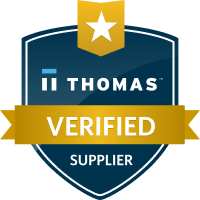ARMCOAT Plating Services
ARMCOAT Plating is a proprietary chromium coating applied to metal to substantially increase wear and corrosion resistance. The Armcoat process will also provide excellent lubricity, adherence and uniformity, protecting it from the eroding effects of friction, chemicals, and weather.
ARMCOAT Plating will not exceed .0002" total growth under normal circumstances. This will eliminate undersize design calculations in most applications.
ARMCOAT is compatible with most ferrous and non-ferrous metals, allowing maximum flexibility in choosing base materials. Cost savings may also be created by the elimination of costly base materials, such as stainless steel, and that the Armcoat process requires no additional grinding or secondary applications.
For more information about the benefits of ARMCOAT plating or to get started on increasing the corrosion protection of your metal components, we invite you to
contact our shop today!
Properties
| Material-------Against-------Material | Static | Sliding |
|---|---|---|
| Steel-------Against-------Steel | 0.30 | 0.20 |
| Steel-------Against-------Babbit | 0.25 | 0.20 |
| Steel-------Against-------Armcoat | 0.17 | 0.16 |
| Babitt-------Against-------Armcoat | 0.15 | 0.13 |
| Armcoat-------Against-------Armcoat | 0.14 | 0.21 |
Benefits
Products Finishing, Inc.
2002 Greengarden Road - Erie, PA 16502 • 814-808-7235
Web Design by LocalEdge , all rights reserved
Follow Us
Contact Us for Plating Machine Services & More!
Products Finishing, Inc. provides honing, grinding, and plating machine services, including hard chrome and black chrome plating. With each of our services performed, we always make sure the prep, process, and post-process steps are completed in their entirety, ensuring the best possible outcome. No matter what plating machine services you are looking into, our team will deliver results that will exceed your expectations. We also offer a variety of other plating services, including electroless nickel plating, polymer plating, mold plating, and selective plating.
For more information about hard chrome plating or to learn more about our other services, contact us today! Our staff members are always enthusiastic about educating and providing information regarding the plating machine services available and can steer you in the right direction when it comes to scheduling for your project.

